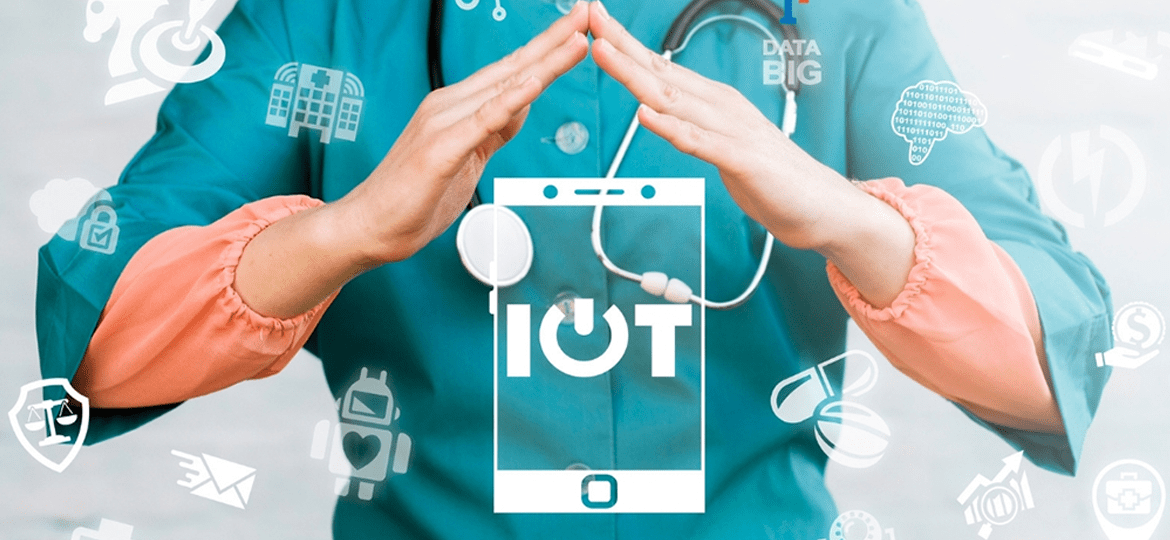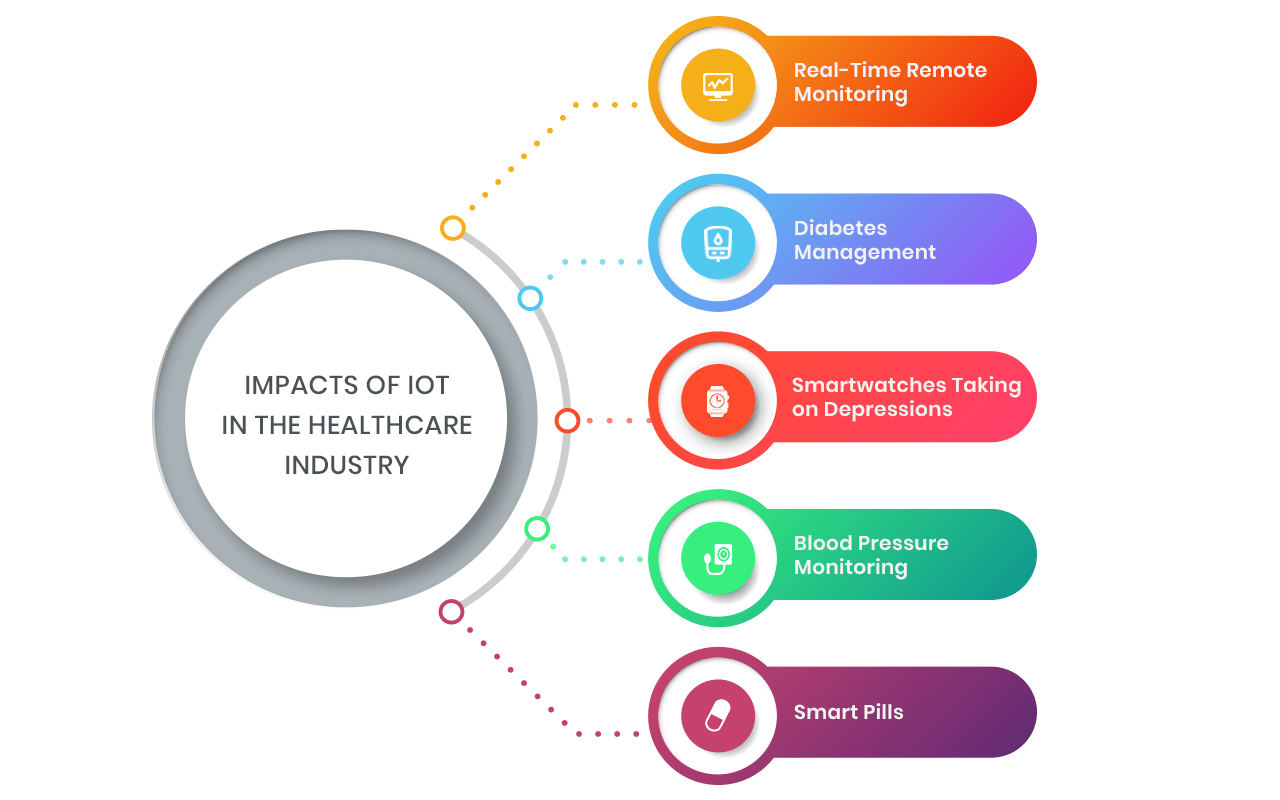
The Impacts of IoT in the Healthcare Industry (Infographic)
Personal care and prompt are the two crucial things everyone is concerned about when it comes to the right healthcare experience. The current world is changing rapidly, and everyone is connected through digital technologies. Here is where IoT (Internet of Things) is making a huge impact on digital connectivity levels.
The connection of things is inspiring new workflows, practices, and driving plenty of trends featuring more precise and efficient diagnostic recommendations. IoT embodies the frontier where the outer limits in the place are tried and tested in both patient care and facility management.
Role of IoT in Healthcare:
According to MarketResearch.com, “the impact of IoT in the healthcare industry is set to hit about $117 billion by the end of the year 2020.” At present, about 30% of the healthcare industry is dedicated to EHR (Electronic Health Record), Portable Health Monitoring and Pharmaceutical safeguards.
Internet of Things is the connection of network and physical objects so that they transmit data and signal to each other. IoT has started establishing in most of the vertical across the globe. IoT is everywhere, from smart homes to retail industries. While considering the role of IoT in healthcare, doctors are able to provide on-time patient care, effective treatments, and decrease the treatment and diagnosis cost. From wellness and health management via smartwatches, IoT has an impact on the healthcare industry from every aspect.
How IoT impacts the Healthcare Industry?
This infographic shows effective ways that indicate how IoT has ethical impacts on the Healthcare industry.
Real-Time Remote Monitoring:
- Monitoring devices can be easily connected with IoT, and this enables doctors to monitor patients in real time.
- The devices are also capable of transmitting the signals from home and therefore decreases the time required for the patient care in the hospitals.
- It also reduces the necessity for doctors attention and can enhance the level of care offered at the same time. It will also provide real-time data which will help in delivering medications based evidence.
Diabetes Management:
- Scott and her husband Dana Lewis hacked the Insulin pump and the Continuous Glucose Monitor (CGM) of Dana.
- The Raspberry Pi computer deciphered the data which was then transmitted from the Continuous Glucose Monitor, and this also controlled the insulin pump to refill the needed quantity of insulin in the blood. 59 people reported that they used this solution which was presented in 2016 at OSC, held in Austin.
- Later Roche in 2016 obtained the rights of distribution to an implantable long term CGM (Continuous Glucose Monitor ) system.
- This used a 90-day sensor, and it was placed below the skin of the patient. It analyzes, monitors and sends signals regarding the blood glucose level to the mobile device with the help of a smart transmitter.
Smartwatches taking on Depressions:
- Takeda created a test case on about 20 people who suffered from MDD, one of the major depressive disorder.
- They came up with an Apple watch app for this purpose, and this helped in assessing and monitoring the mood of the people.
- Once it is identified, the report is then sent to the server. There are three apps incorporated to analyze and track the fitness activities like reps, runs, sleep cycles and more along with the smartwatch application.
- These apps are at present in the phase of testing and present a massive potential growth in the future.
Blood Pressure Monitoring:
- Roche in 2016 incorporated a coagulation system which was Bluetooth enabled and this was used for monitoring the blood coagulation pace for anticoagulated patients.
- The sensor-based intelligent system is used for monitoring the levels of blood sugar in patients who suffer from hypertension.
- The medications are offered based on the requirements, and there is no need for guesswork. This type of devices launched for BP monitoring can help in decreasing the cardiac arrest risk in specific or critical cases.
Smart Pills:
- Pharma companies like Proteus Digital health, TruTag, and WuXi Pharma Tech are developing smart pills which is IoT enabled and helped in monitoring the patient’s health issues, medication, ared adherence controls.
- The pellets get dissolved in the stomach and then it transmits a signal to the sensor which is worn on the body of the patients. The message then gets transferred to the mobile devices for accessing the patient’s records significantly.
- The smart pills make sure that the patients can analyze their medications, take the right medicines apart from decreasing the risk.
Few other applications that the IoT impacts in the healthcare industry include infant monitoring, clinical grade biometric sensors, sleep monitoring, infant monitoring and more. Stay in touch with us to learn more about IoT.


